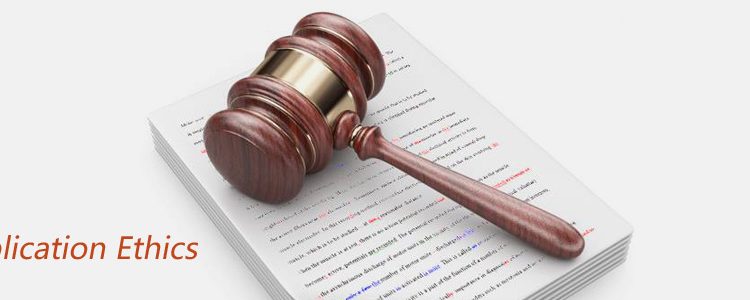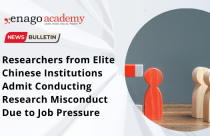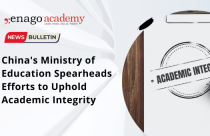China’s Stand against Academic Misconduct

The Chinese Association for Science and Technology (CAST)—one of China’s main research agencies—is taking drastic measures against scholars involved in academic misconduct. In an attempt to “promote a healthy scientific spirit” and “strengthen scientific ethics”, CAST and other important Chinese organizations including the Chinese Academy of Sciences and the Natural Science Foundation have jointly released the “Five Don’ts of Academic Publishing”.
China’s “Five Don’ts of Academic Publishing”
This new set of rules was introduced to clarify the ethical norms that govern scientific publishing, increase the awareness of Chinese researchers in this area, and protect the reputation and interests of the Chinese academic community. It is a response to the recent issues involving fraudulent peer reviews and third-party writers and includes the following points. Researchers may not:
- Let a third party write their paper.
- Let a third party submit their paper.
- Let a third party add any contents to their paper (however, authors may commission someone to improve the language of their manuscript based on an original text written by themselves).
- Provide false peer review information.
- Violate the regulations in academic paper submissions (before submitting a paper to any journal, all the authors must review and approve it. Once the manuscript has been submitted, all authors are responsible for its content).
An Action against Retractions
During the last few years, several papers co-authored by Chinese researchers have been retracted from international journals because of scientific misconduct. In an announcement published in December 2015, several Chinese organizations pointed out that this could have a bad influence on the reputation of China’s academics and mentioned that “it is up to each national association and institution to defend the academic dignity of the country.” The five rules listed above are meant to help Chinese scientists resist academic fraud and maintain a good working environment.
In August 2016, a manuscript published in the European Journal of Medical Research was retracted after the Chinese authors’ institution raised concerns about the authorship of the paper. According to the retraction notice, the authors’ contributions to the article could not be confirmed and the peer review process was apparently compromised. The researchers had asked a third party to edit and submit the manuscript for them. In another case involving Chinese academics, a manuscript was retracted from the International Journal of Neuroscience after the editors realized that the author list had been changed from submission to publication. This raised serious doubts about the provenance of the paper.
Need for Clear Rules
Unfortunately, there are many other examples of scientific misconduct related to Chinese scholars. The “publish or perish” culture in academia, which is not only a problem in China, has led to worrying irregularities in science communication. The “Five Don’ts of Academic Publishing” are an overdue response to this negative trend and clearly supports many honest authors who disapprove such unethical practices.
To ensure that the new rules are implemented properly, Chinese organizations will communicate and coordinate efficiently with one another. Any ethical violations will be recorded by the higher authorities and an information network will be established to blacklist authors who are involved in scientific misconduct.









